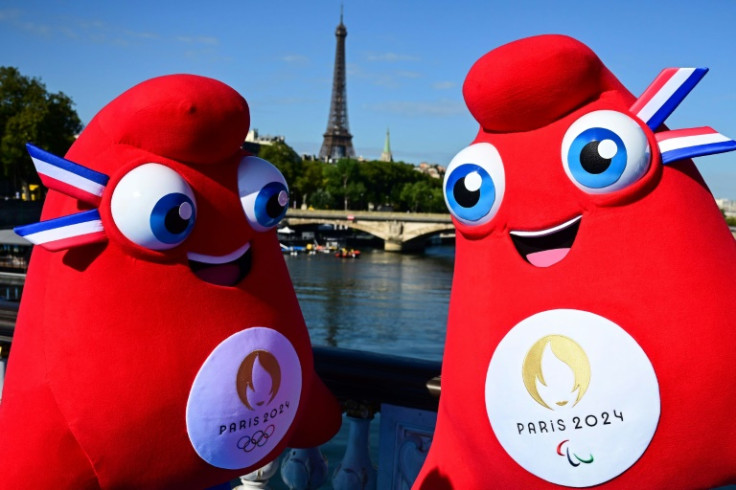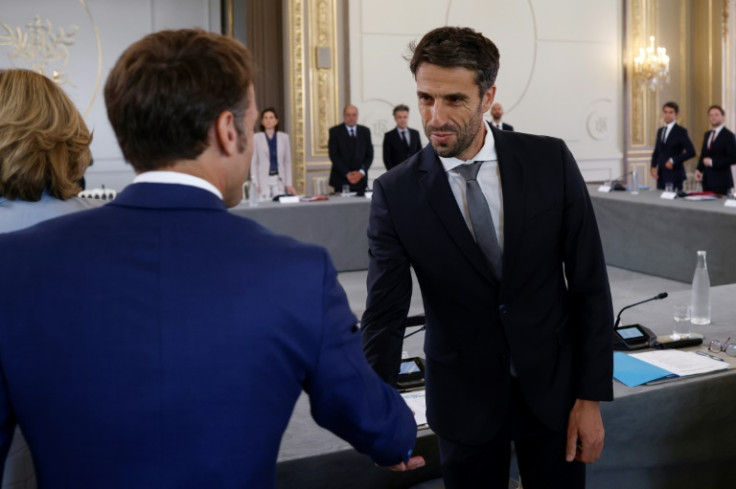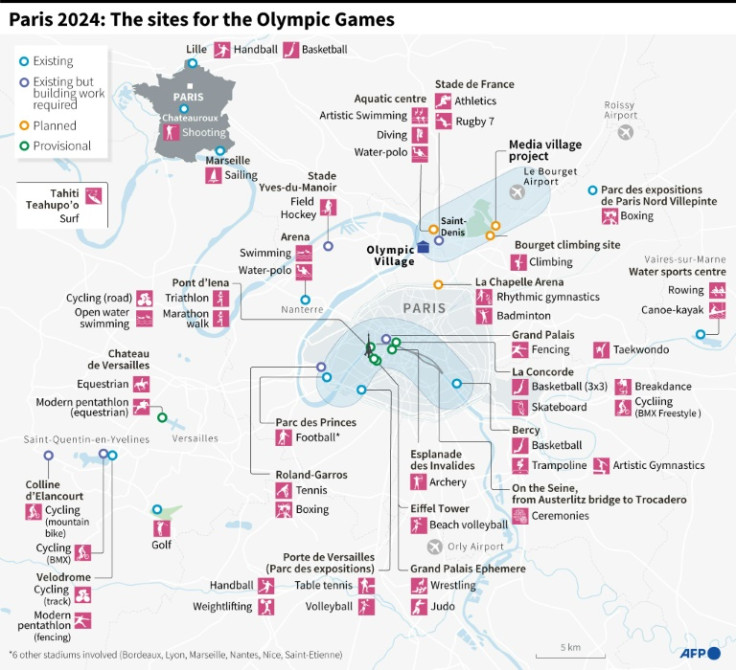
Political bickering, ongoing grumbling about ticket prices and disruption to everyday life are souring the mood in the build-up to the Paris Olympics this July -- something organisers blame on typical French pessimism.
Several recent announcements have led to a spike in negative publicity for the sporting mega-event which will start in just six months and draw a television audience of billions.
Many Parisians were dismayed in December by news that transport ticket prices are set to double for the duration of the event and that they should work from home to free up seats on busy metros and buses.
The unveiling of planned security measures led to claims some parts of the city would face Covid-style lockdowns, while controversy erupted about the environmental impact of a judges' tower at the surfing venue in French Polynesia.
On top of it all, Paris's Socialist mayor Anne Hidalgo and President Emmanuel Macron's centrist government fell out publicly after Hidalgo claimed that planned Paris transport upgrades would "not be ready".
"There have been a succession of issues that have been badly handled from a communication point of view," said Philippe Moreau Chevrolet, a lecturer in communication at Sciences Po university in Paris and the founder of the MCBG Conseil PR agency.
"Instead of getting people behind the Games, they have created mistrust," he told AFP.
France's association of hoteliers and restaurants owners issued an unusual statement earlier this month, condemning French politicians for their "anxiety-inducing" announcements around the Games and urging them to come together.
"In general, we would strongly urge all of our public authorities, collectively and with solidarity, to speak positively and responsibly," the statement added.
Other recent complaints centre on the construction work that snares traffic daily around the capital, while resentment lingers over the handling of ticket sales last year that saw many locals priced out.
Paris will see "the most expensive ticket prices in an athletics arena that we have witnessed at an Olympic Games," said World Athletics president Sebastian Coe in December. Coe, who oversaw the 2012 London Olympics, added he was worried the families of some athletes would be unable to attend.
Paris 2024 organisers remain confident that sights such as beach volleyball in front of the Eiffel Tower, swimming in the river Seine, or the marathon through the capital's fabled streets will lift spirits once the flame is light on July 26.
They make a distinction between the often noisy and attention-seeking media and political debate and wider public opinion.
A survey by the Odoxa group for RTL radio in November suggested that 65 percent of French people were in favour of the Games -- a fall of 11 points in two years but still a large majority with positive views.
In the Paris region, slightly more than half of people were in favour.
Organisers also point to the orderly preparations, as well as their budget restraint in comparison with other modern editions.
Most of the sporting infrastructure is finished. The athletes' village is almost ready to be furnished. Crucial metro and train line extensions will be ready in time, they insist.
"What if everything went ok?" asked a headline in the left-wing Liberation newspaper at the start of the year.
"France is ready for the Olympics... but given the country's gloomy mood and its unpopular leaders, there is no sign of popular fervour," it added.
Tony Estanguet, the head of the Paris organising committee, has criticised "Olympics bashing" in the media and the former canoeing champion despaired of his compatriots' tendency to look on the downside.
"We like to look at what is not going well, focus on things that are out of place, concentrate on our weak spots, whereas some countries like to play up their qualities and strengths," he told France Inter radio this month.
Jennifer Minner, an academic at US-based Cornell University who studies major international events, says grouchy locals are a frequent feature of the build-up.
"I've found that pessimism is not unusual immediately prior to the staging of a 'mega-event', especially when the realities of hosting become more apparent," she told AFP.
Performance anxiety is also natural for every Olympic Games host as it prepares to showcase the best of itself to the rest of the planet.
Surveys show French people are most nervous about a security problem, particularly at the spectacular opening ceremony being planned on the river Seine.
"It's possible that once the Games are underway, if everything goes well, people get into the spirit of the Games," added Moreau Chevrolet.









